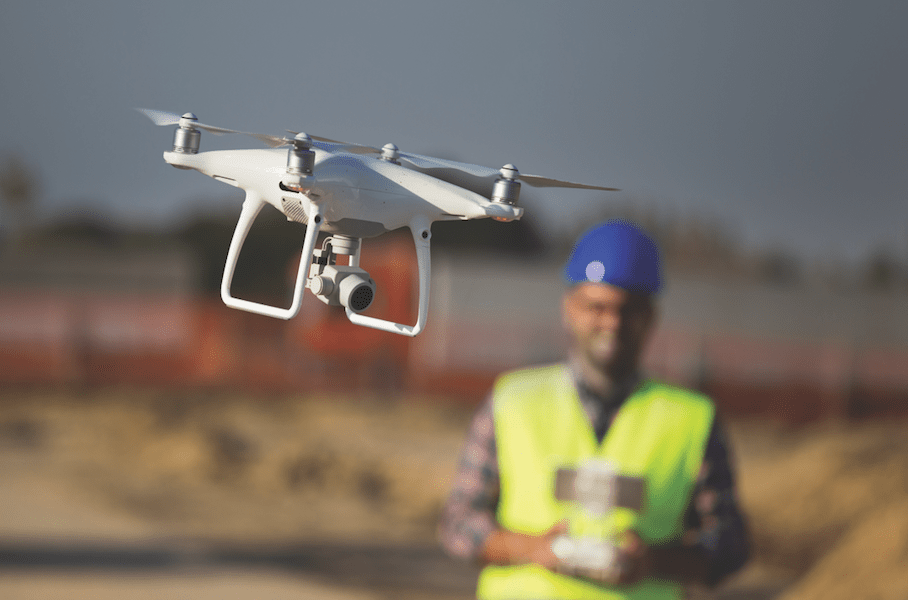This story originally appeared in ProSales sister brand Remodeling.
From online reviews to satellite measurements, technology continues to disrupt the traditional way contractors do business. But many contractors remain in the dark about one of the biggest technology disruptions heading their way: drones.
In fact, one in 10 companies with revenues of $50 million or more already uses drones, according to a report from Skyward, a drone operations and consulting firm. The engineering and construction sectors are leading the drone charge, with a 35% adoption rate.
That rate will only accelerate as more companies realize what drones can do for them, predicts Suzanne El-Moursi, president of Uplift Data Partners, a drone services provider for the construction industry. Uplift, along with fellow drone service companies such as DroneBase, Drone Dispatch, and Up Sonder, offers a way for contractors to outsource drone piloting and information gathering.
Along with a larger availability of drones, El-Moursi says relaxed FAA regulation has already increased drone usage—but that’s only the beginning. By 2020, 1.6 million drones are expected to be flying daily.
Here are three ways El-Moursi predicts drones will change business for contractors—and how they can use the technology to their advantage. 1. Home inspections
Contractors currently spend a lot of time assessing homes for damage and project scope. But a drone can do all of that with a single flight while also digitizing all the data for easy access. Drones can even be used to determine materials needed and facilitate those orders.
2. Risk management
Many contractors do jobsite spot checks to make sure workers are following proper safety protocols. But what if drones could be flown to make those same spot checks? And what if those spot checks could be done much more regularly because they’re so inexpensive and easy to do?
3. Materials delivery
Getting materials to the jobsite can be a major logistical and costly hurdle. What if those same materials could be droned into place? El-Moursi says a number of companies, including Airbus and Uber, are working on drones to deliver some of the most precious cargo on the planet: people. “Drones can carry heavy payloads,” she says. “By 2020, we’ll see drones delivering materials.”



